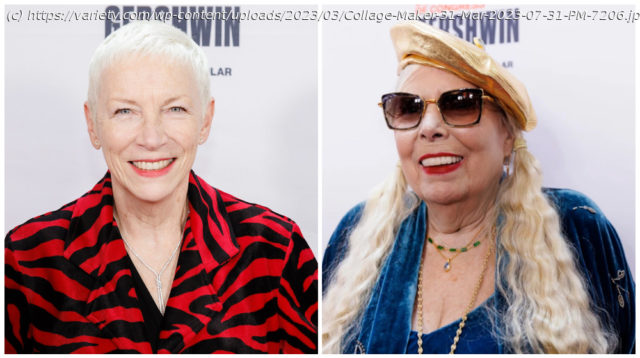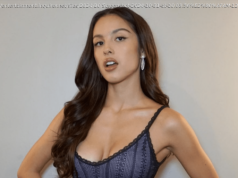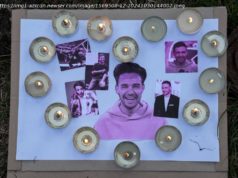Annie Lennox talks about singing ‘Both Sides Now’ on the ‘Gershwin Prize’ salute to Joni Mitchell, and how the legend changed her artistic life.
The vibe surrounding Joni Mitchell being bestowed with the Gershwin Prize in Washington, D.C. earlier this month — as seen in a new PBS special — couldn’t have been more harmonious, from all accounts. And that’s a good thing, because under less loving circumstances, there could have been a turf war over who would get to sing “Both Sides Now,” the song that was Mitchell’s first hit in 1967 and might still stand as her signature song, if someone had to pick one with a gun to their head.
The victor, in this quiet, bloodless battle: the inimitable Annie Lennox, who performed at the tribute to Mitchell just months after being inducted into the Rock and Roll Hall of Fame as a member of Eurythmics.
The way executive producer Ken Ehrlich tells it, it might not even have been that close a call. “I’ve always been taken by her,” says the longtime former producer of the Grammys, who had her on that show on numerous occasions. “I can tell you this now because I don’t think people will get pissed off at me,” Ehrlich says. “Everybody wanted to do ‘Both Sides’ — everybody. I don’t want to go name by name, but the truth of the matter is, everybody wanted to do it. And I held it — and I wasn’t in the beginning, honestly, even sure that I was going to give it to Annie. But she called and she had done some sort of a breakdown of it, and as soon as I got that, I knew that was it.”
He continues, “When this song goes into the recesses of my mind and it gets dragged back out at some point, I know I will be referencing it not just as a performance but almost like performance art. Cyndi Lauper’s ‘Blue’ is like that, and Brandi (Carlile) and Lucius’ ‘Shine’ — in the editing room it struck me that there are four or five like that on the show. Every bit of what Annie did, every movement, was drama.”
Variety spoke with Lennox about her love for Mitchell, what knocked her out among the performances, and why she added a bit of “Why” at the end of her own. (Following Friday night’s TV premiere, the Gershwin Prize special is available for streaming on PBS.org and on the PBS app.)
In performing “Both Sides Now” for this tribute and telecast, did you have to rehearse the song a lot, or did it come somewhat naturally to you from all the years of listening?
It’s both, actually. I did a lot of preparation, because it’s a funny thing when you’re singing someone else’s song, and someone whose work and artistry you’ve just simply adored for such a long time. You have to make it yours, and the only way to do that is to kind of imbibe it over and over and over. So I did a lot of practicing and a lot of thinking about it every day for a long time. Joni’s songs, to really learn them, you have to dig deep.
The Gershwin Prize looks to the influence that the artist that they’re honoring has had. And when you think about Joni Mitchell’s influence, it runs so far and so deep, and I think it’s really pretty untouchable. I don’t think there’s any other female artist — or even male artist, let’s face it; let’s take gender out of it — that has had such a body of work that is so profound, so exquisite, so poetic, so lyrical, so evocative, philosophical, painful, melodic.






